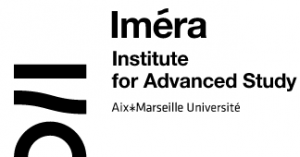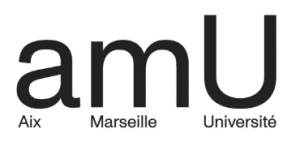IMÉRA MEDITERRANEAN PROGRAMME ┋Albert Hirschman: identity passions between Europe and the Mediterranean
Sciences Po Aix / Iméra Chair

Recommendations for submitting an application under the “Mediterranean” programme:
- The research project must be relevant to the intention of spending a research period at an institute for advanced studies based in Marseille.
- The research project must be relevant to the thematic lines of the “Mediterranean” programme.
Conditions of application and residence
Two major reasons led to the creation of the Albert O. Hirschman Chair at Iméra in Marseille. The first is an act of recognition, given the historical role that Albert Hirschman played in Marseille between 1940 and 1941. He was the deputy to Varian Fry, who headed the Emergency Rescue Committee. He helped save hundreds of prominent figures who needed to be exfiltrated and leave Europe in the face of Nazism, starting from Marseille. The second reason for the creation of the Hirschman Chair is the eminent scientific role he embodies. A senior fellow at the Institute for Advanced Study in Princeton, Hirschman is a global scientific authority and an original thinker in the field of social sciences. He notably published Passions and Interests: Political Arguments for Capitalism Before Its Triumph, which is why it was decided to focus this chair on the passions of identity between Europe and the Mediterranean.
The Albert O. Hirschman Chair also pays tribute to a second dimension of his career: the embodiment of open, critical, and interdisciplinary thinking, attentive to the tensions between economics, politics, and society. The Chair bears his name to continue this intellectual vigilance in the face of the identity passions that run through contemporary European and Mediterranean societies. Through his career as an economist and social scientist, particularly in his two major works, Defection and Speaking Out: Theory and Applications and Passions and Interests, he laid the foundations for a close link between economics and politics. Albert Hirschman reminds us that economics and social sciences are as concerned with the search for laws as they are with the search for meaning.
Projects may fall under one or more of the following themes:
- Collective passions
- National, regionalist, and identity movements
- Social and political behavior
- Protest movements and forms of protest
- Mobility, migration, and their social and political impacts
- Religions and political-religious dynamics, particularly those related to Islam
- Political forms, particularly democratic fragilities
- Comparative or cross-cutting approaches between Europe and the Mediterranean
Calendar
Application deadline: October 20th, 2025 at 1pm (UTC + 2)
Publication of selection results: early February 2026
Period of residence: from 09/02/2026 to 01/26/2027
Conditions of eligibility
The Albert Hirschman Iméra / Sciences Po Aix Chair is open to researchers with proven scientific excellence in one of the fields of research relating to political economy and the social sciences of politics.
Candidates meeting the following conditions are eligible for election:
- Doctorate or Ph.D. required
- Residence outside France for at least 12 months during the last 3 years
- Employment contract (permanent or temporary) at a foreign university or research institution during the residency
Remuneration and accommodation
The chairholder receives a fixed monthly allowance of €2,500 during his/her stay.
He or she will also receive reimbursement of return travel expenses from his or her country of origin and free accommodation on the Iméra site.
Selection criteria
The criteria used to assess applications include, but are not limited to, the following:
- The researcher’s international scientific excellence
- The scientific quality of the project, in particular its interdisciplinary dimension
- The project’s ability to contribute to the collective dynamics of Iméra and Sciences Po Aix, as well as the Aix Marseille Université academic ecosystem
- The researcher’s ability to engage in forward thinking
Application
The online application consists of the following documents:
- The completed application form (mandatory fields)
- Files to download :
- A curriculum vitae including a list of publications
- A presentation of the research project (maximum 5 pages) followed by a selective bibliography
- Optional: a letter of motivation clearly explaining the interest of the stay in Aix Marseille and the planned collaborations with laboratories at Aix Marseille University and Sciences Po Aix and/or a letter of reference from a personality who has played a decisive role in the applicant’s scientific career.
About the Chair’s partner
Sciences Po Aix, a founding member of Iméra and the A*Midex university excellence initiative, is a leading public school specialising in social and political sciences.
It works closely with other scientific operators in the region, such as Aix Marseille University and the CNRS, and is co-supervisor of three renowned UMRs: MESOPOLHIS-Centre Méditerranéen de Sociologie, de Science politique et d’Histoire(MESOPOLHIS UMR 7064); DICE-Droits International, Comparé et Européen (DICE) and AMSE.
A key player on the Aix-Marseille campus, Sciences Po Aix combines research, interdisciplinary training and educational innovation (RSO and BWS programmes). It promotes local scientific life through a number of initiatives, such as the Sciences Po Aix dans la Cité cycle and the Franco-German Forum on the Mediterranean, organised with Iméra, CFAP and the Konrad-Adenauer Foundation.


